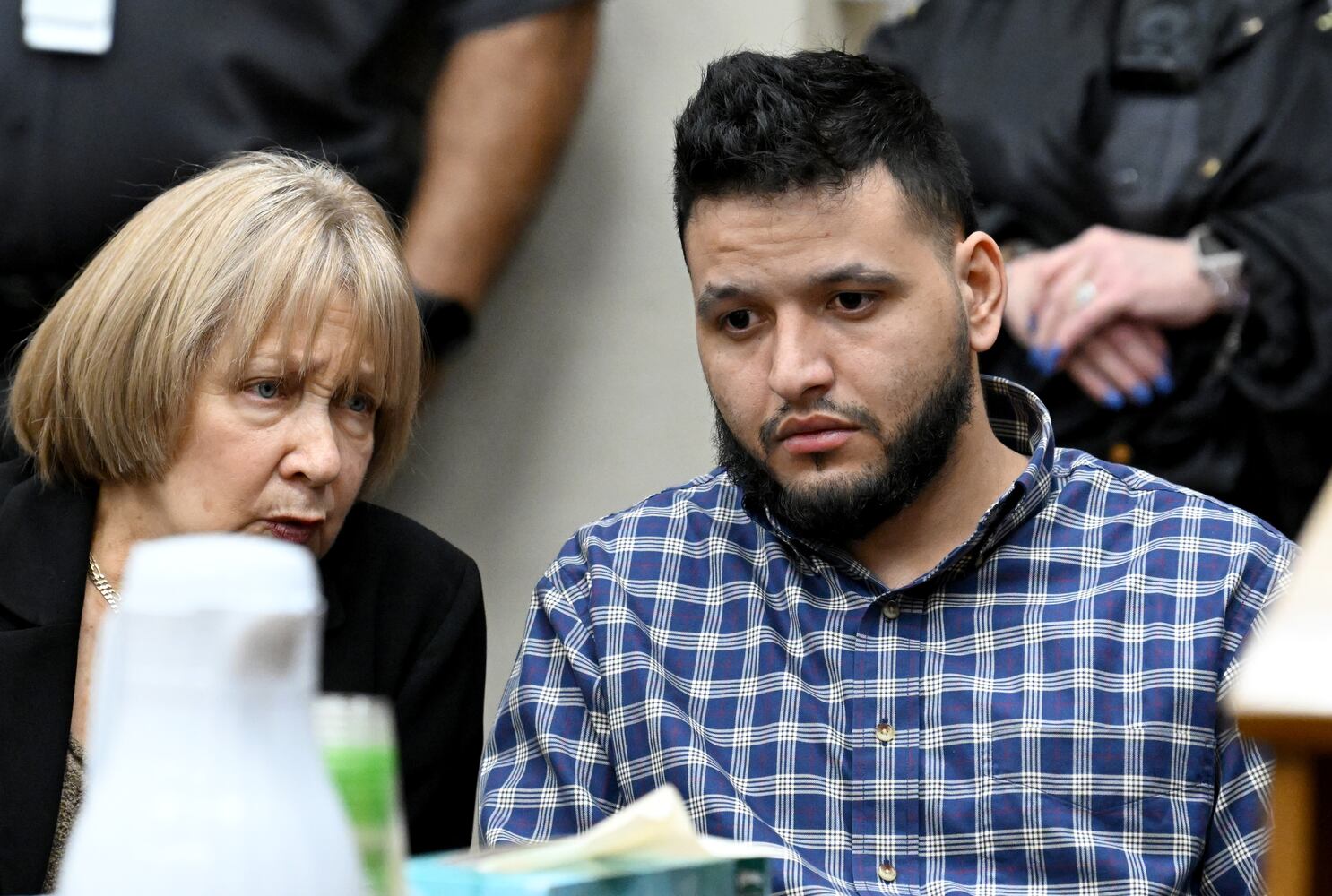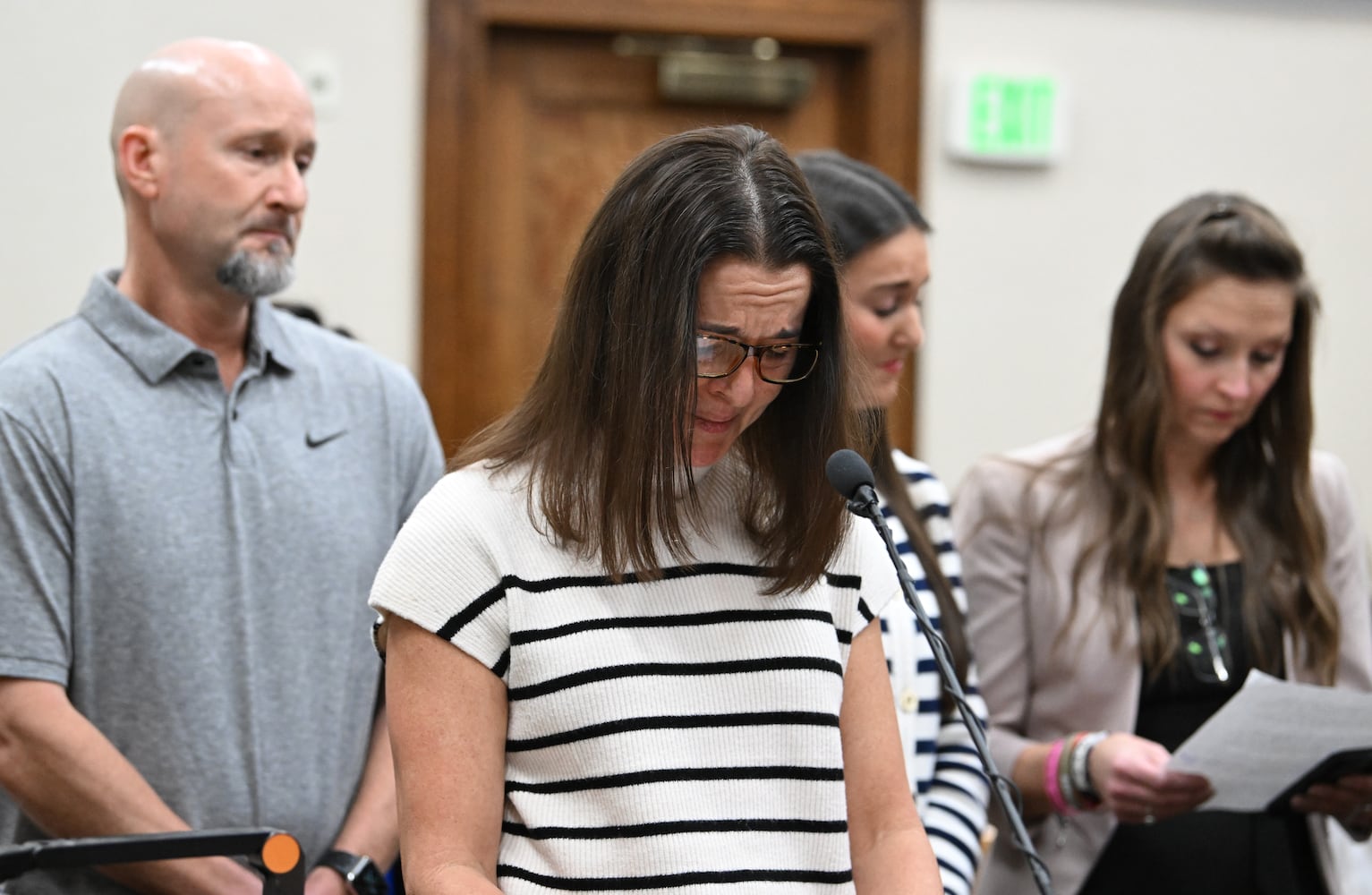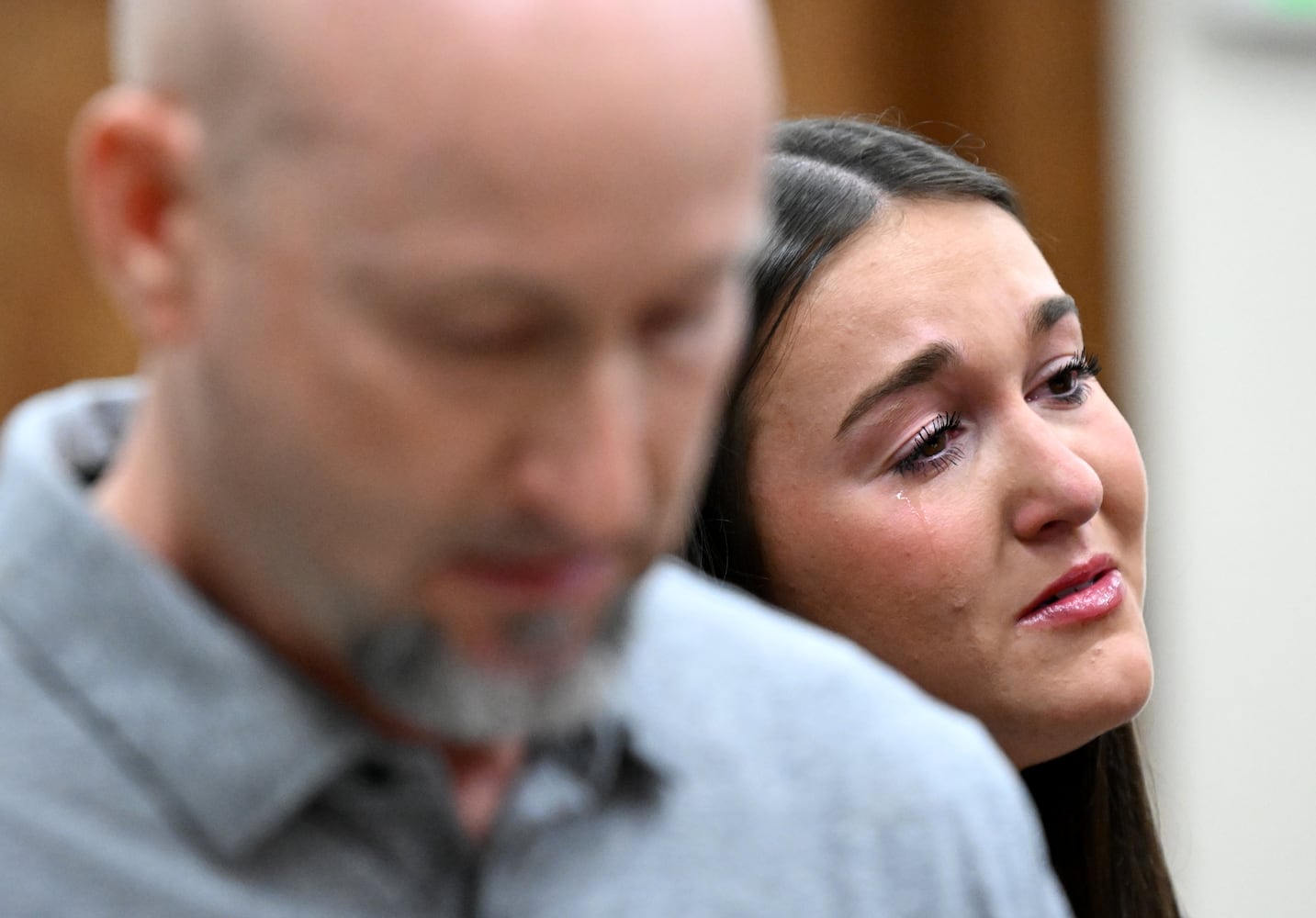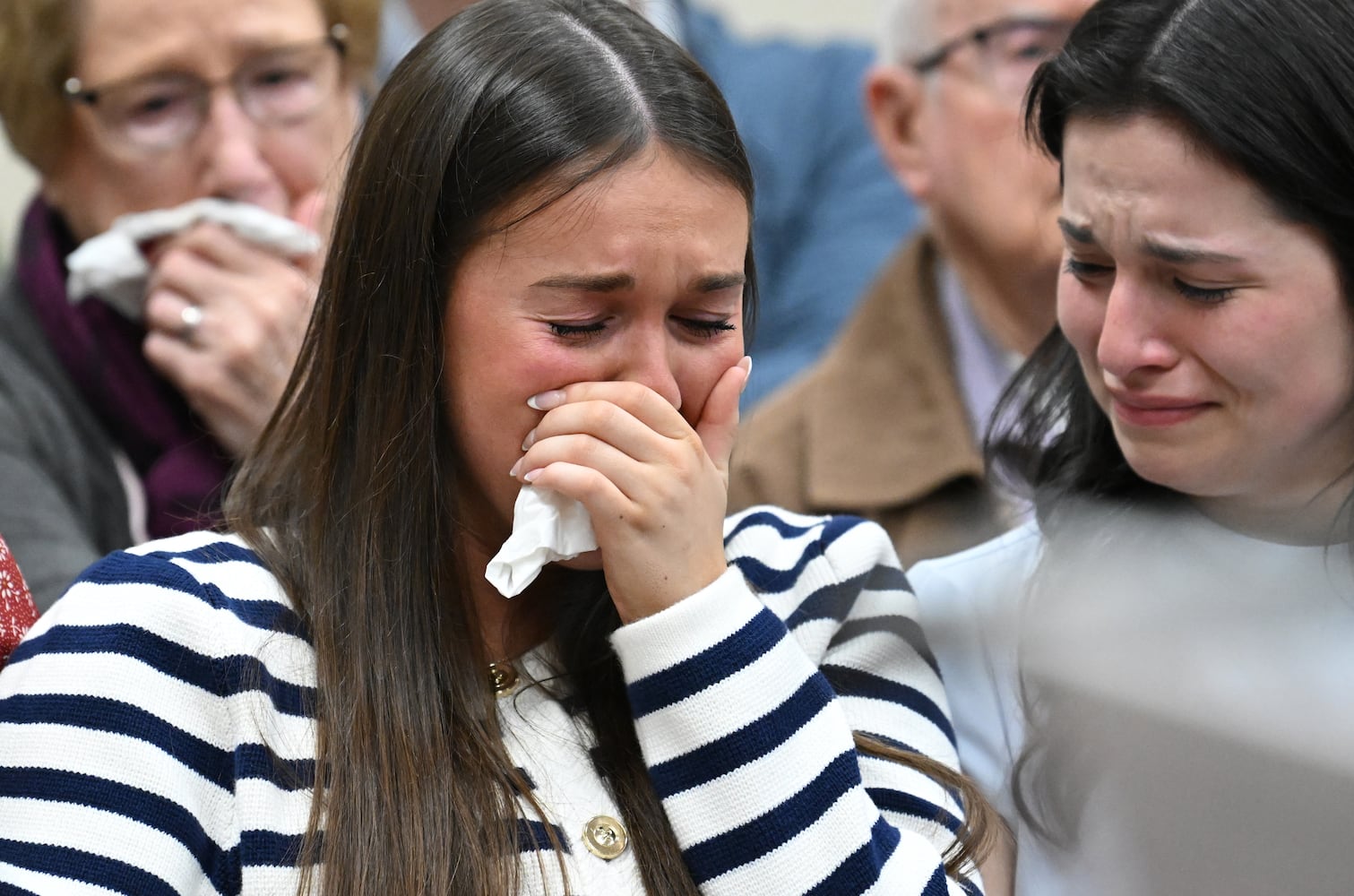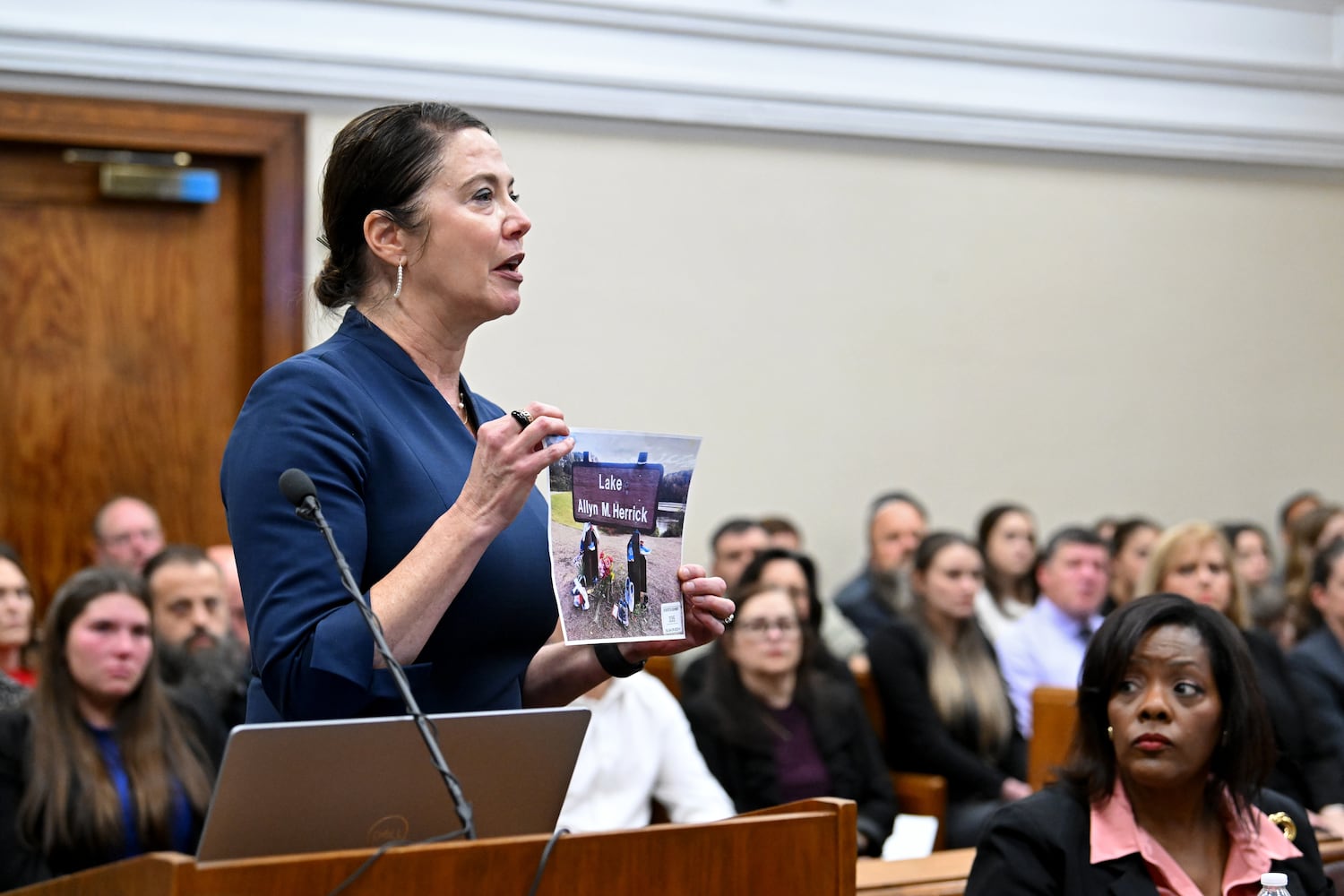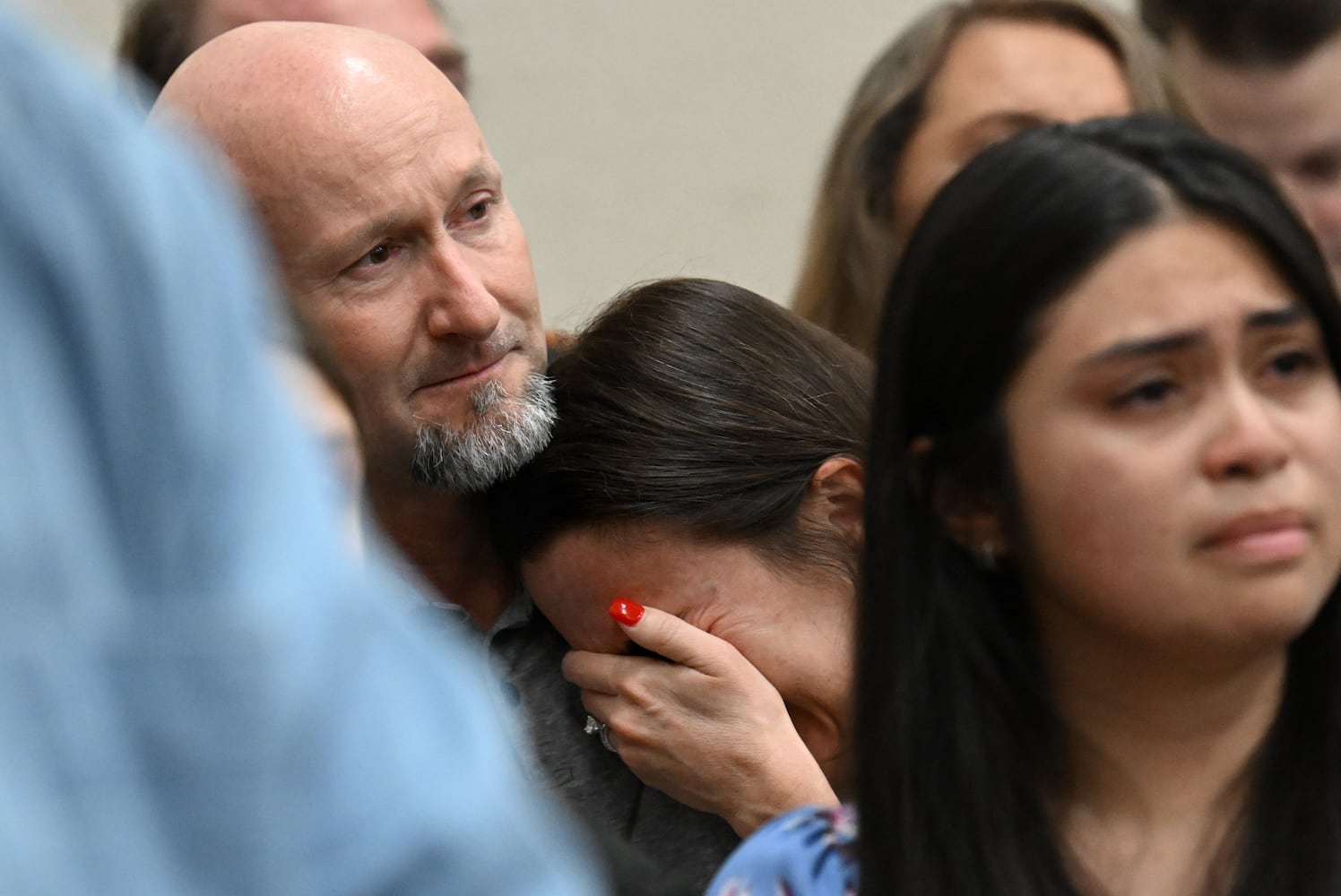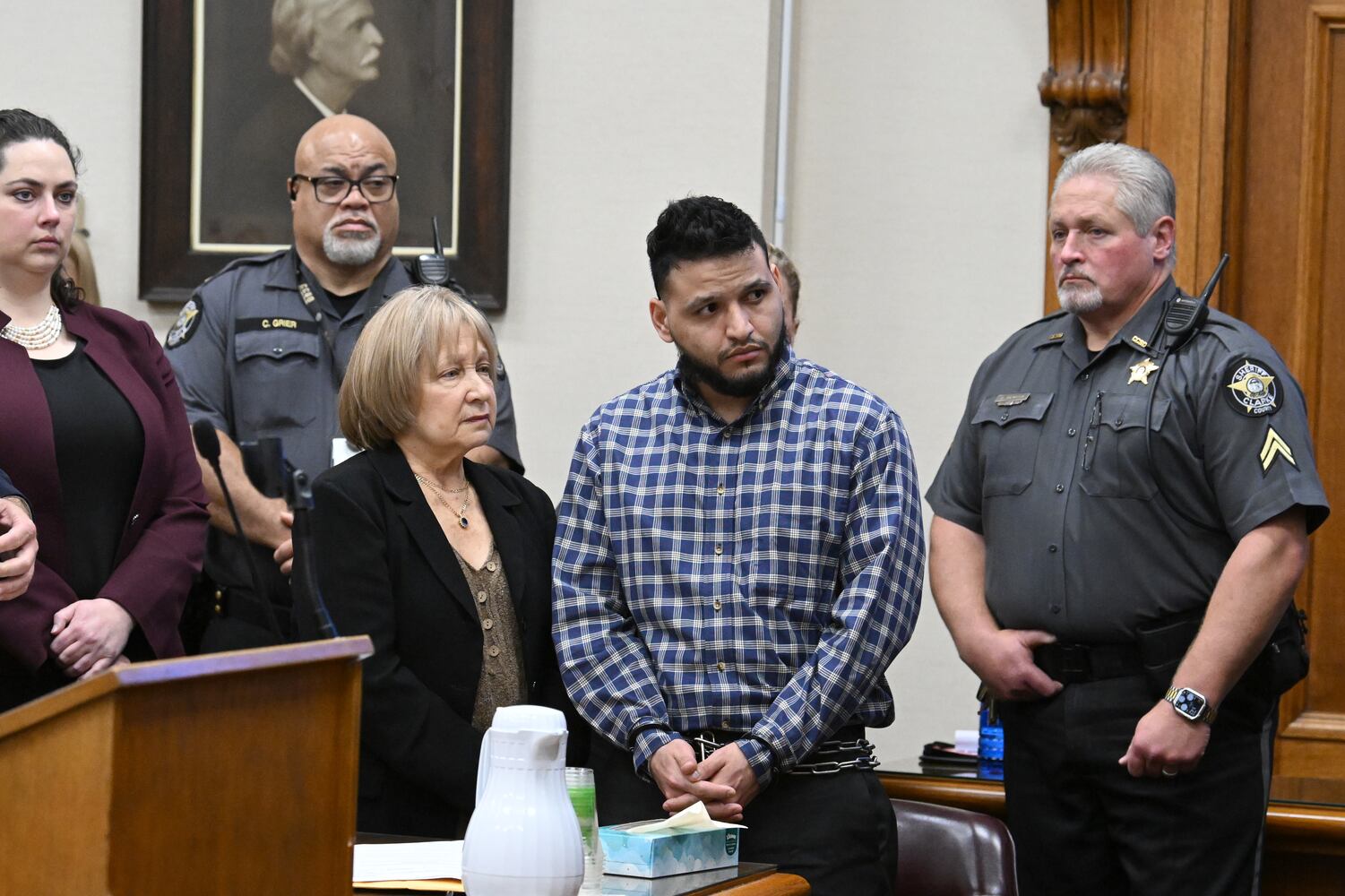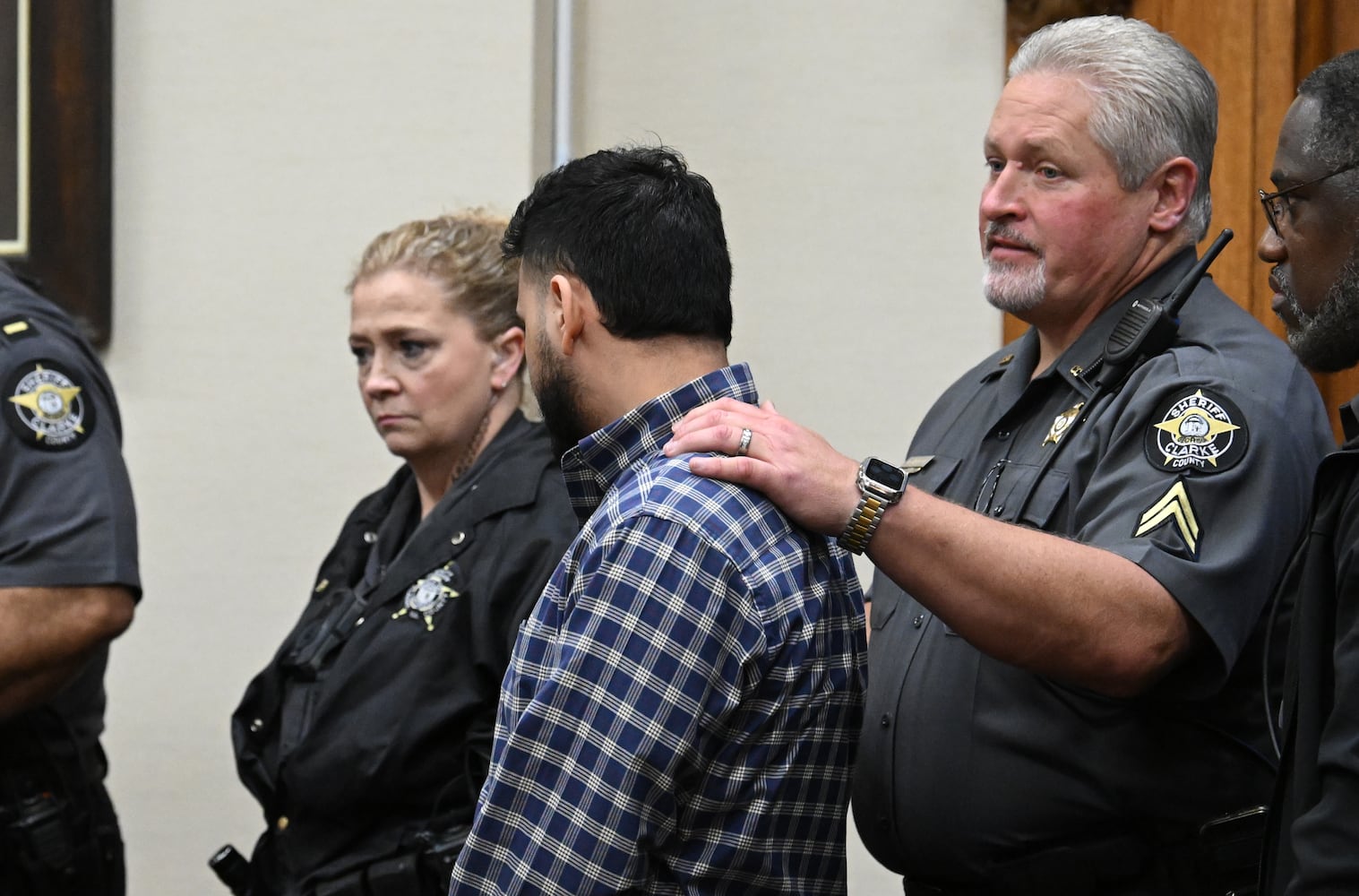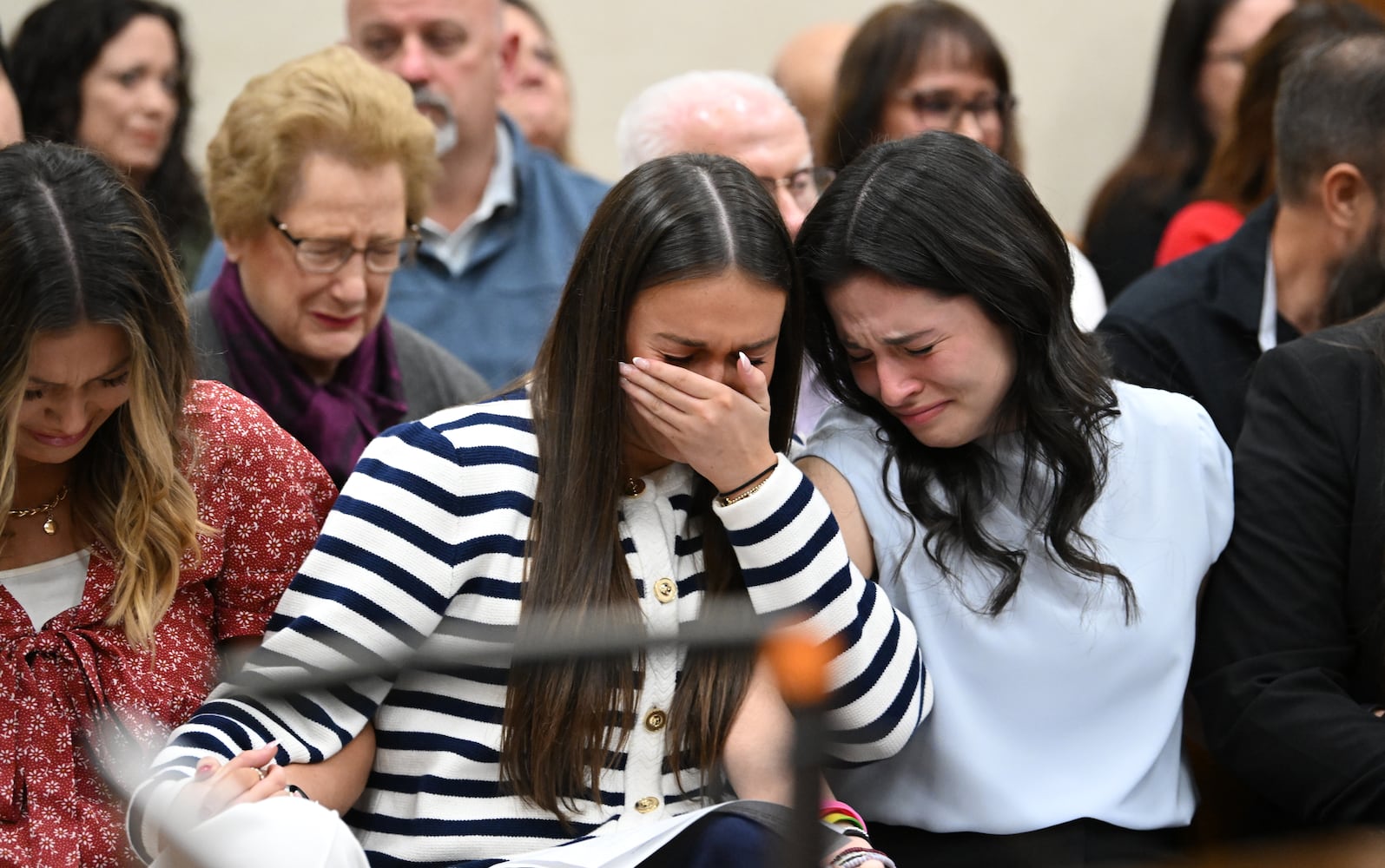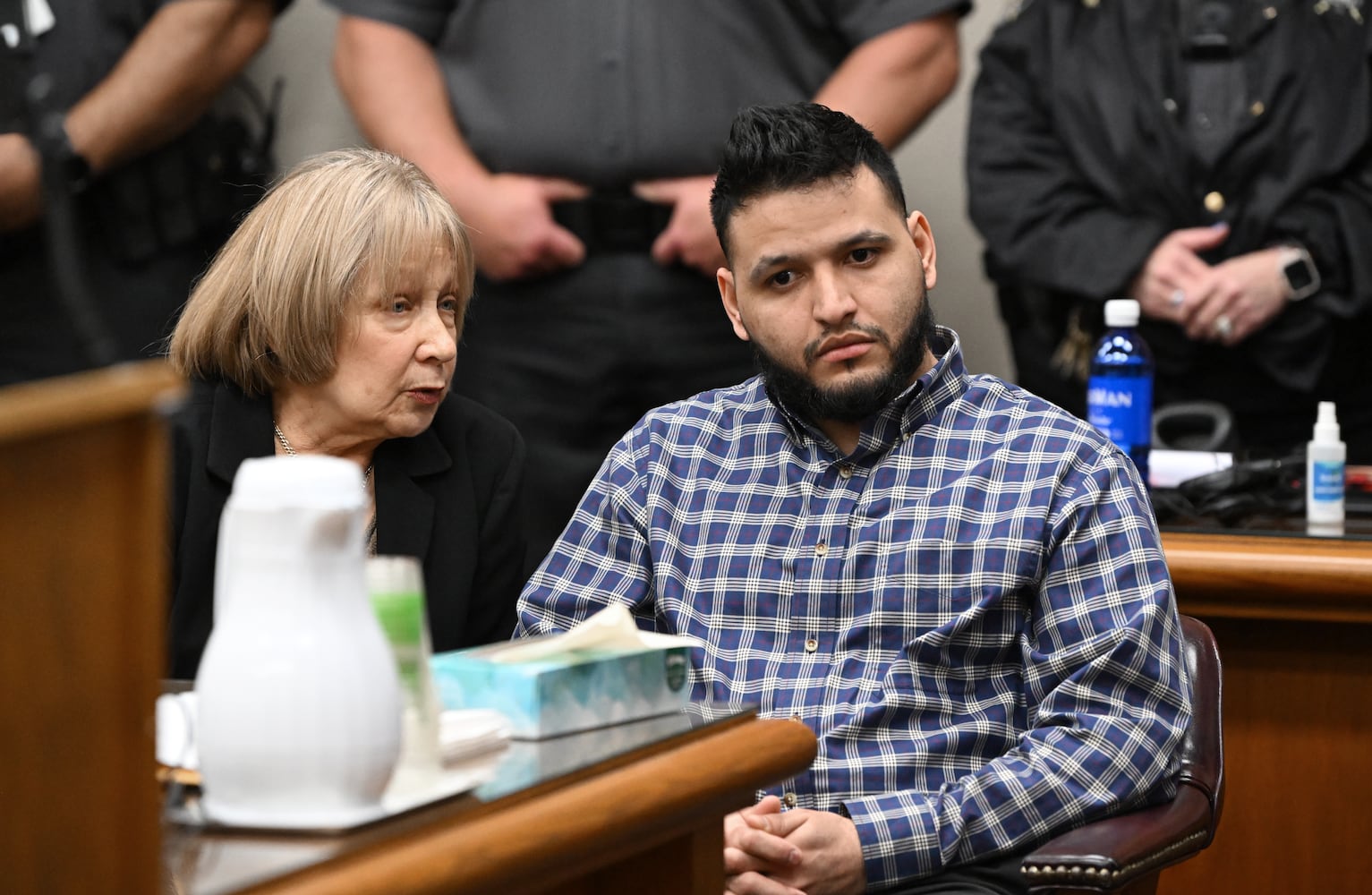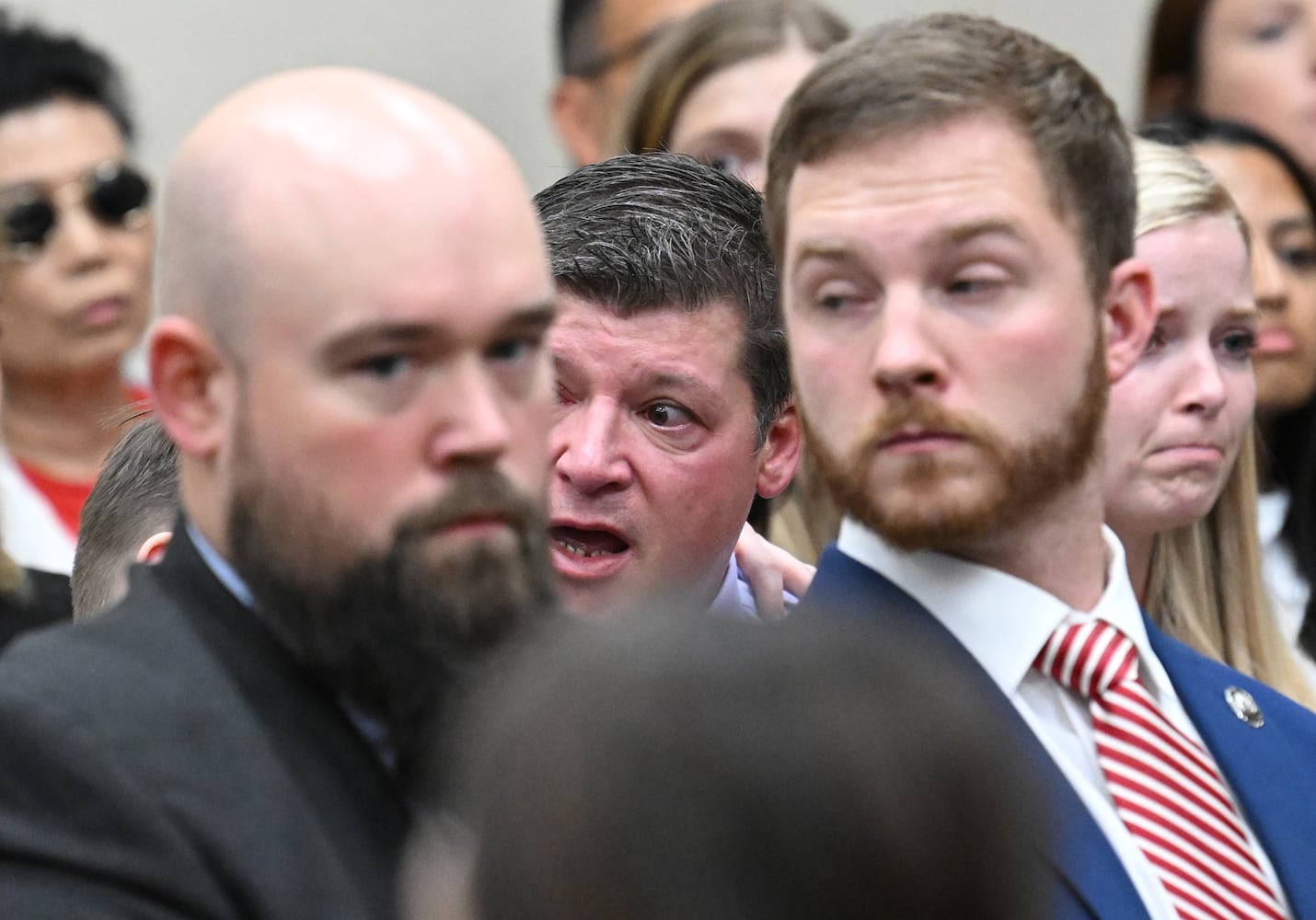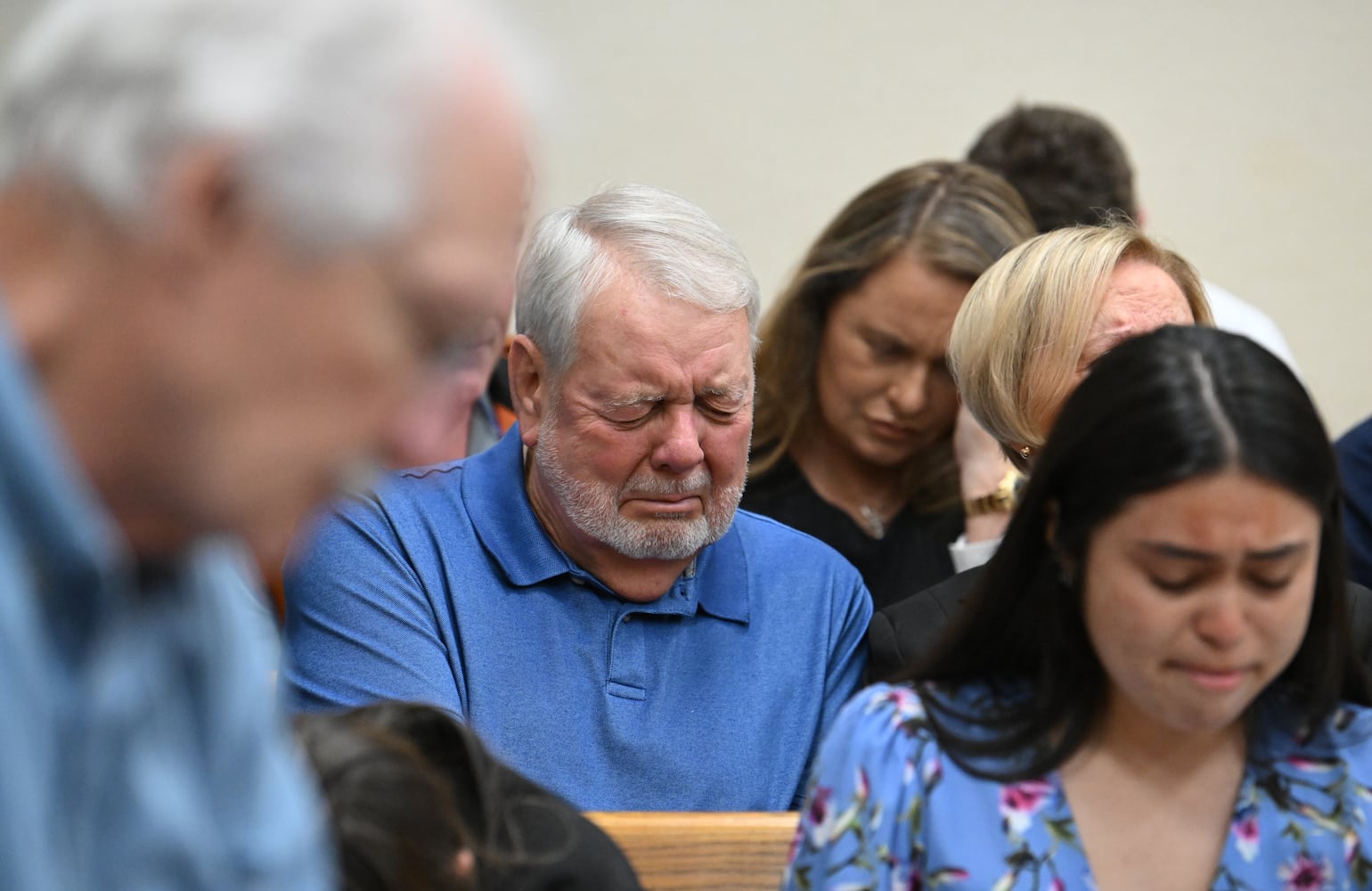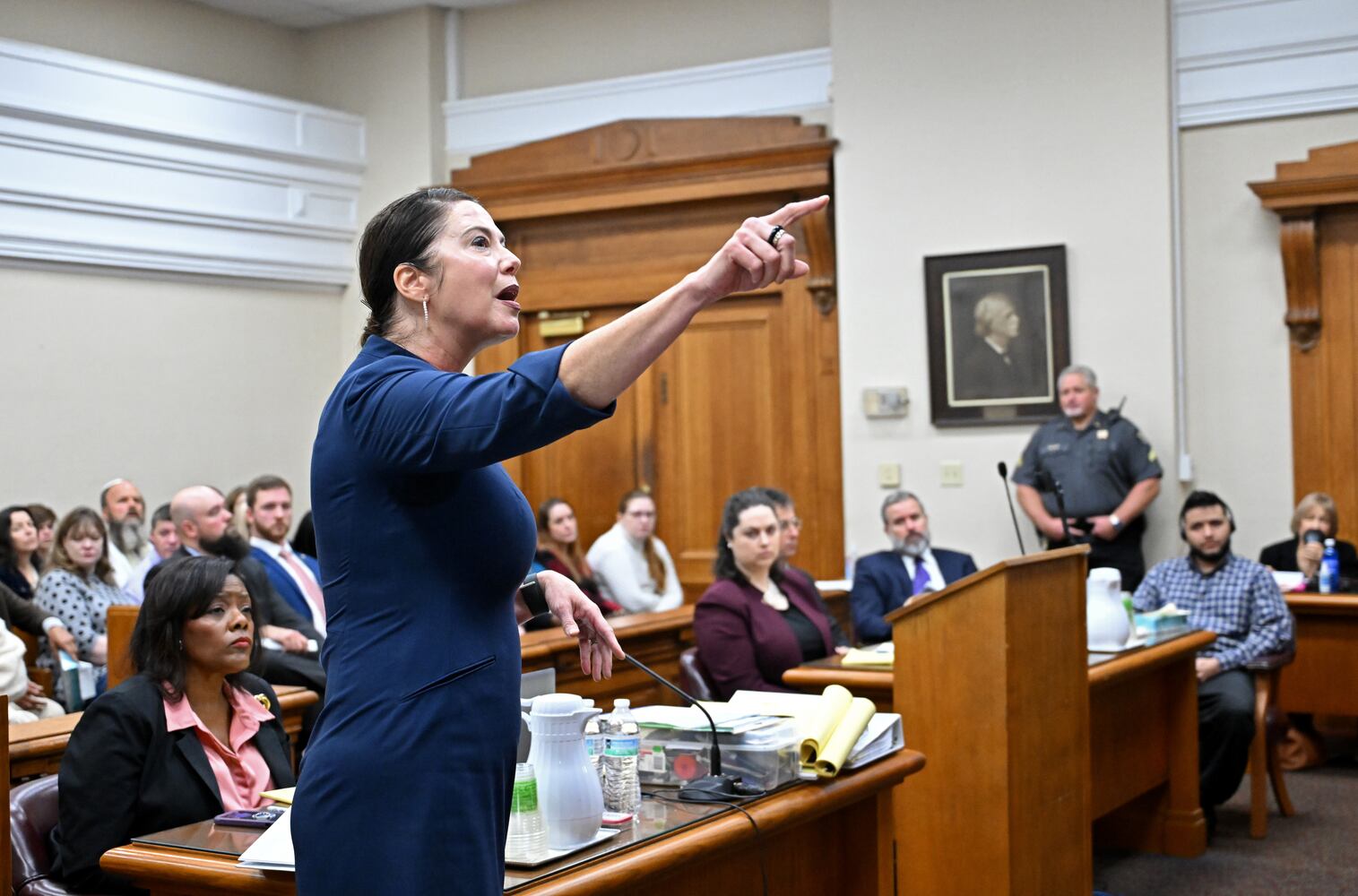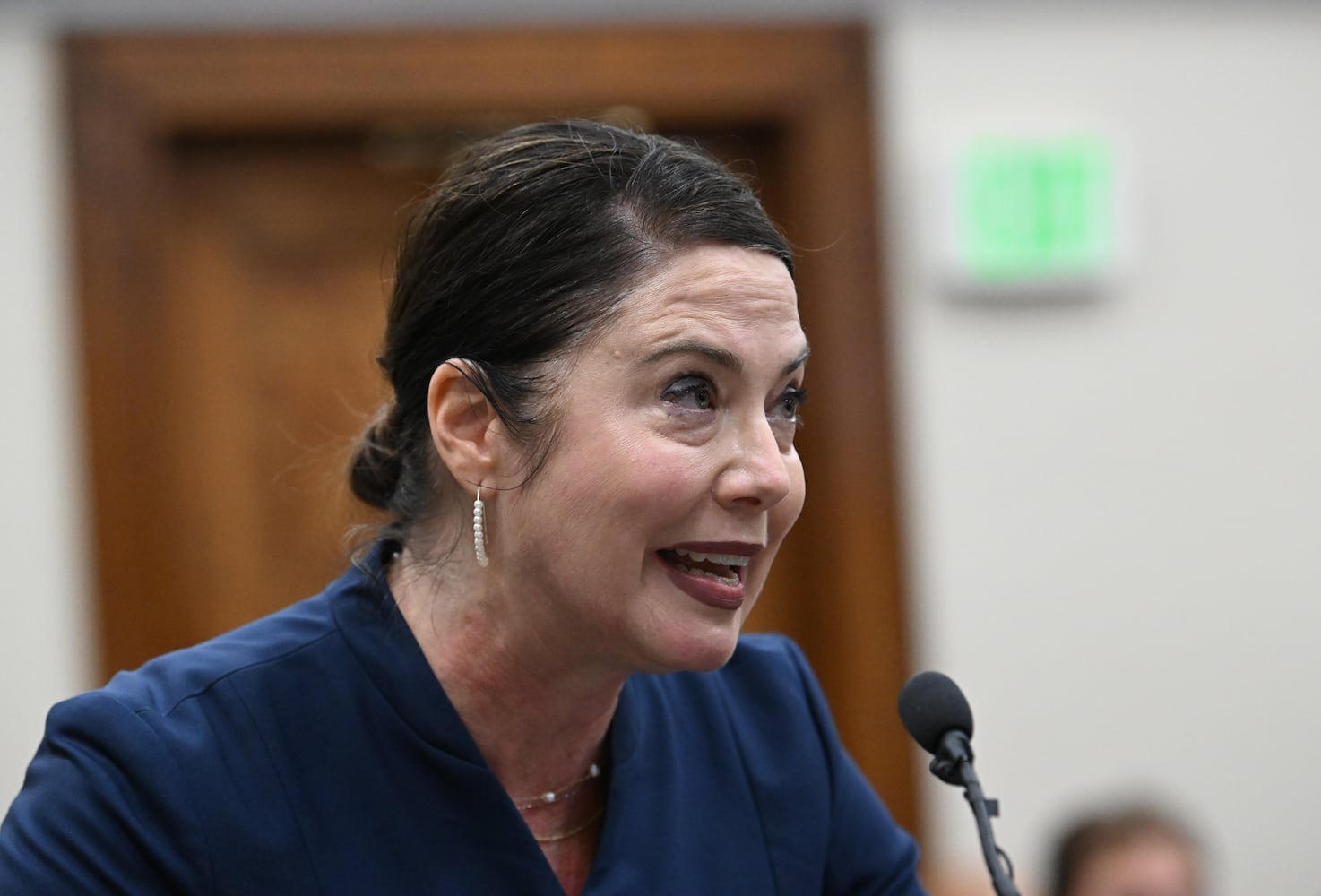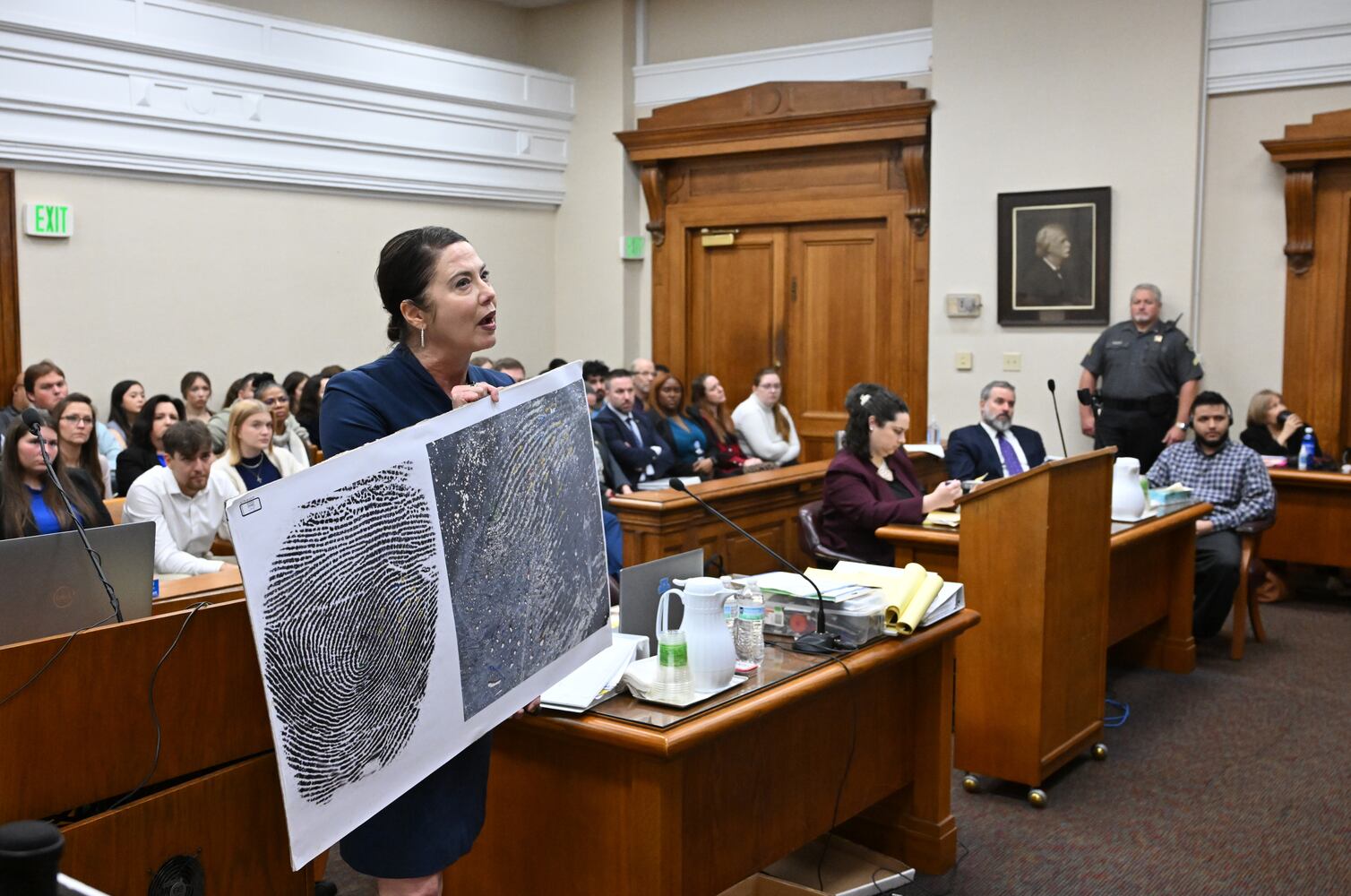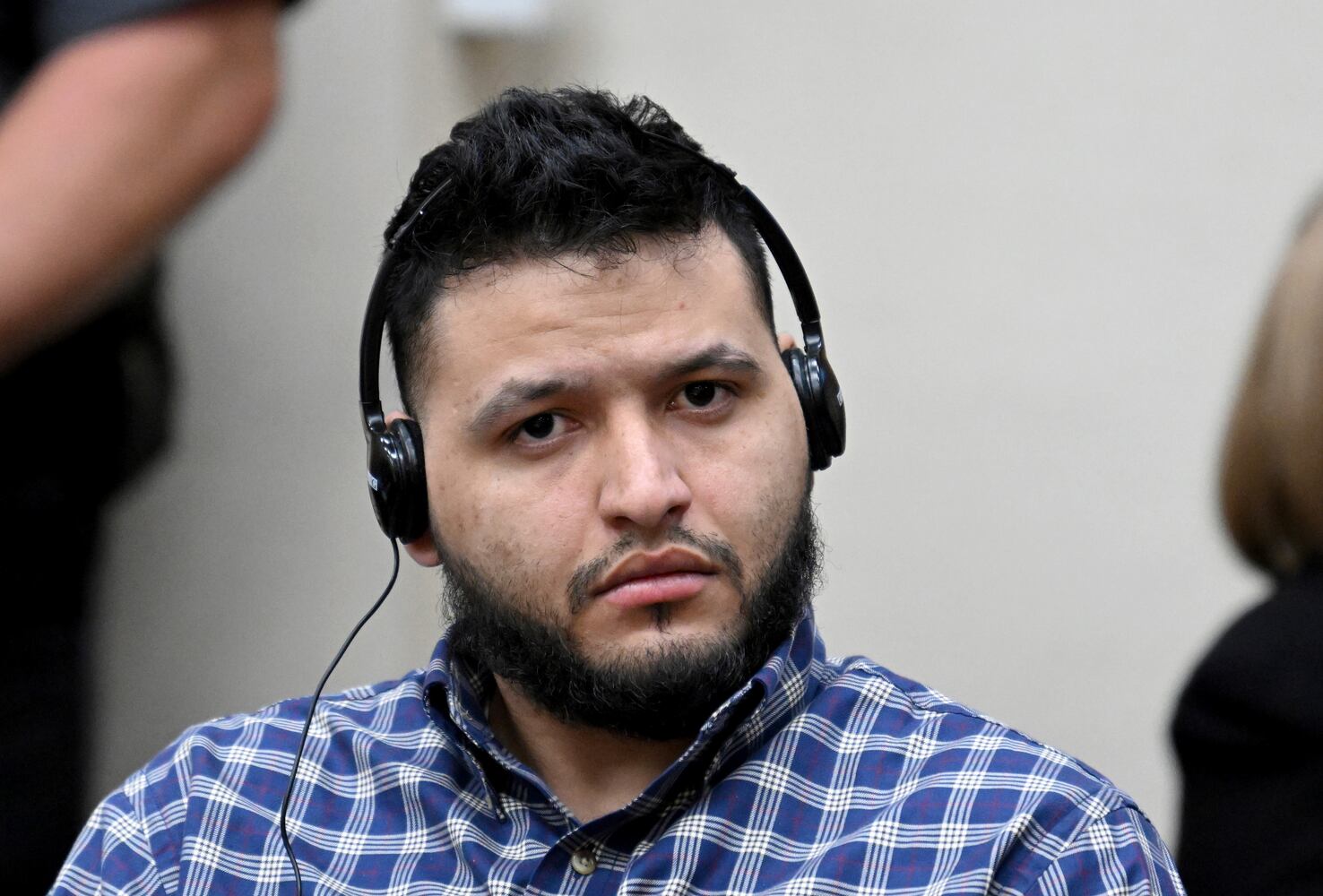ATHENS — As she was trying to fight off her attacker, Laken Riley marked him with scratches and secured his DNA under her fingernails. Wednesday, that evidence helped convict Jose Ibarra of murder.
“The evidence in this case has spoken loud and clear that he is Laken Riley’s killer,” special prosecutor Sheila Ross said in her closing argument, recounting testimony from experts who said the 5-foot-4 nursing student had clawed at Ibarra’s arms and neck as he tried to rape her.
Ibarra was sentenced to life in prison with no possibility of parole after a bench trial in front of Superior Court Judge H. Patrick Haggard. The judge found the 26-year-old Venezuelan guilty of felony murder, malice murder, kidnapping with bodily injury, aggravated assault with intent to rape, aggravated battery, hindering a 911 call and tampering with evidence. He was also convicted of a Peeping Tom charge.
The violent death of Riley, a 22-year-old who was jogging on the University of Georgia campus, became a flashpoint in the national debate over illegal immigration. Authorities say Ibarra — arrested the day after the slaying — entered the country illegally in 2022. He lived with his two brothers, who also did not have authorization to be in the country.
“Open border policies failed Laken Riley, and today’s verdict is a reminder that the safety of our communities must remain our number one priority,” Gov. Brian Kemp wrote in a statement.
Haggard came to his decision 15 minutes after closing arguments ended. Before that, he listened to three days of testimony during which the prosecution called more than 20 witnesses and entered more than 300 items into evidence.
The defense called just two witnesses: a man who was running on the trail on the day of the crime and a neighbor of the Ibarras. The runner testified that he saw a suspicious man in dark clothing loitering in the area but that he remembered him as being possibly taller than Jose Ibarra. The neighbor said Diego Ibarra, Jose Ibarra’s brother, had threatened her, saying “I will kill you, too” when they were talking about the crime before an arrest was made.
Defense attorney Kaitlyn Beck tried to poke holes in the state’s argument, questioning the reliability of the DNA evidence, asserting that cross contamination could have occurred and offering up Diego Ibarra as a suspect.
She pushed back at the state’s case in her closing argument, saying, “While the evidence is voluminous, it is circumstantial.”
Riley began her ill-fated jog shortly after 9 a.m. on Feb. 22. She sent a text and tried to call her mother but didn’t reach her. She then cued up music on her phone, picked up her pace and headed for trails in a wooded area near the University of Georgia intramural fields.
Minutes later, she came to a complete stop, according to a Garmin watch she was wearing. That’s because she unexpectedly encountered Ibarra, Ross said.
At 9:11 a.m., Riley called 911. But, when a dispatcher asked what the emergency was, no one spoke.
Riley put up a “fierce” fight for her life that lasted 17 minutes, Ross said. Evidence presented at trial showed that her Garmin watch stopped registering her heartbeat at 9:28 a.m. Riley was bludgeoned with a rock and asphyxiated. An autopsy showed her skull was fractured.
Credit: Hyosub Shin/AJC
Credit: Hyosub Shin/AJC
Riley’s roommates testified that they became increasingly concerned about her when she hadn’t returned home from her run, didn’t answer phone calls and an app continued to show that she was on the trails near the university’s intramural fields. Her family members were also worried because they couldn’t reach her.
“You’re making me nervous not answering while you’re running. Please call me. I’m worried sick about you,” her mom texted at 9:58 a.m. Again and again, she called and texted.
Riley’s roommates went searching for her just before noon but didn’t find her.
Police found her body shortly before 1 p.m., about 65 feet off the running trail.
Law enforcement officials from the University of Georgia police force, Athens-Clarke County and Georgia Bureau of Investigations immediately sprung into action. They got a huge break when Athens-Clarke County police officer Zachary Davis, searching nearby dumpsters for anything unusual, discovered a discarded jacket. It looked to be stained with blood and had hair entangled in the buttons.
Officers pulled footage from a security camera in the area, which eventually led them to Ibarra. Talking to him, they noticed scratches on his arms and wrists.
In victim impact statements made before Ibarra’s sentencing, Riley’s family members and friends urged the judge to give the defendant the maximum sentence.
“He took my best friend,” said Allyson Phillips, Riley’s mother. “He ripped away every beautiful memory we will ever be able to make with her again.”
Connolly Huth, Riley’s roommate, said she no longer runs and feels guilt that she wasn’t with her friend on the trail the morning she died.
”I could not imagine running when I am constantly looking over my shoulder in public wondering if I am next,” Huth said.
Riley’s sister, Lauren Phillips, told the judge her older sister was a role model. Phillips graduated high school in May and enrolled at UGA.
”I now have this hole in my heart and in my life,” she said, “that I know will never be filled.”
Credit: HYOSUB SHIN / AJC
Credit: HYOSUB SHIN / AJC
About the Author
Keep Reading
The Latest
Featured
